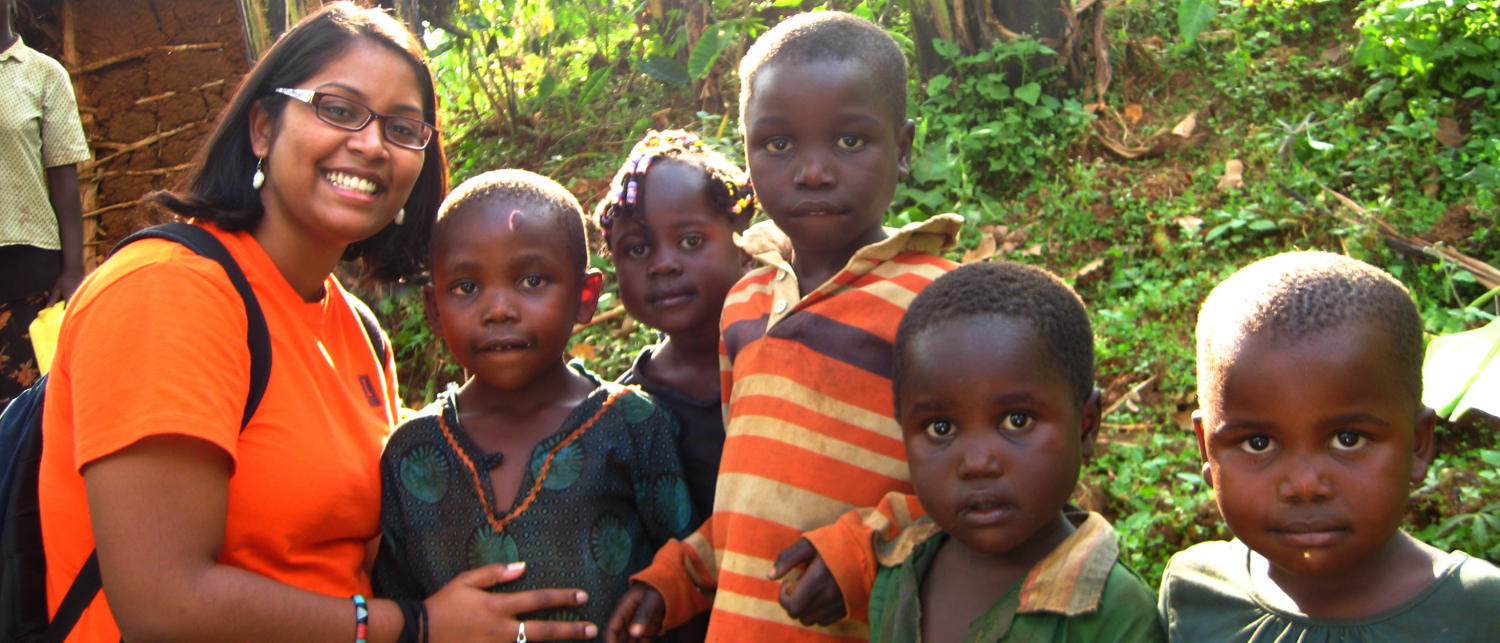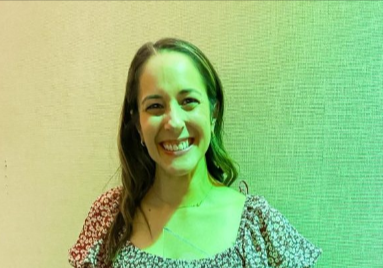Akshita Siddula graduated from Niles North in 2010 and is now a sophomore at the University of Illinois at Champaign-Urbana. Interested in a career in public health she recently participated in a trip to Uganda where she had a close-up view of healthcare needs in the developing world. A former managing editor of North Star, she wrote about her experiences and shared them with us. Here is her story.
It’s been a month now since I’ve returned from Uganda and I’m still not over it. I don’t think I ever will be. It was one of the most wonderful experiences of my life.
The trip was a blur. After two days in transport we finally arrived in Entebbe, Uganda, from which we took a nine-hour drive to the Bududa district, a rural and mountainous region of Eastern Uganda. We were quite close to the border and were actually able to see Kenya from the mountaintops. Uganda is a beautiful country and by far one of the most gorgeous places I will ever visit. Every person I met was so nice and welcoming; my daily walk/climb to the clinic was always filled with children shouting out and cheering “Muzungu! Muzungu!” which means “foreigner,” along with women greeting us with a casual “Mulembay yaya” meaning “hello, child.”
We spent the first few days visiting local clinics within our district as well as vocational schools and elementary/secondary schools in the area. The FIMRC clinic, also known as the Beatrice Tierney clinic was first constructed in an effort to meet the health needs of the nearby school but the severe lack of medical care in the surrounding region makes the clinic an essential resource for the Bumwalukani community at large. The dispersed rural community around the clinic is comprised of approximately 10,000 to 15,000 inhabitants and Project Bumwalukani sees more than one hundred patients daily. Malaria is the number one diagnosis at the clinic followed closely by HIV. The most rampant medical issues plaguing this population are readily treatable with preventative measures, education initiatives and continuous healthcare monitoring.
It was amazing to see how much the clinic is able to accomplish despite limited resources and less than ideal circumstances. Station two, which collects vitals, has to use cotton and Purell to sanitize the digital thermometers between patients because they can’t afford probe covers. Station four uses little handmade paper envelopes to give patients medications because they don’t have smaller bottles to give away. They just write instructions on the outside so patients don’t get confused. Station five is literally just a tent outside of the clinic that is shared by two separate offices. The laboratory sometimes runs tests (with body fluids!) without gloves because they ran out and there isn’t enough money left in the monthly budget to buy more or there isn’t enough time to have them delivered all the way up to the village. When you compare it to an American clinic, it seems like the worst absolute place to get medical care but it’s the best option for a lot of the people there.
I spent the next few days traveling to the village of Bukhuma to teach health education at a primary school to about 90 children and 50 women. It was inspiring to see how many people wanted to seek out education despite the lack of a proper school and an adequate staff. My experiences in Uganda inspired me to continue pursuing an international career. I want to work in public health and hope to return to Uganda in the future to continue working in health education and community outreach.














